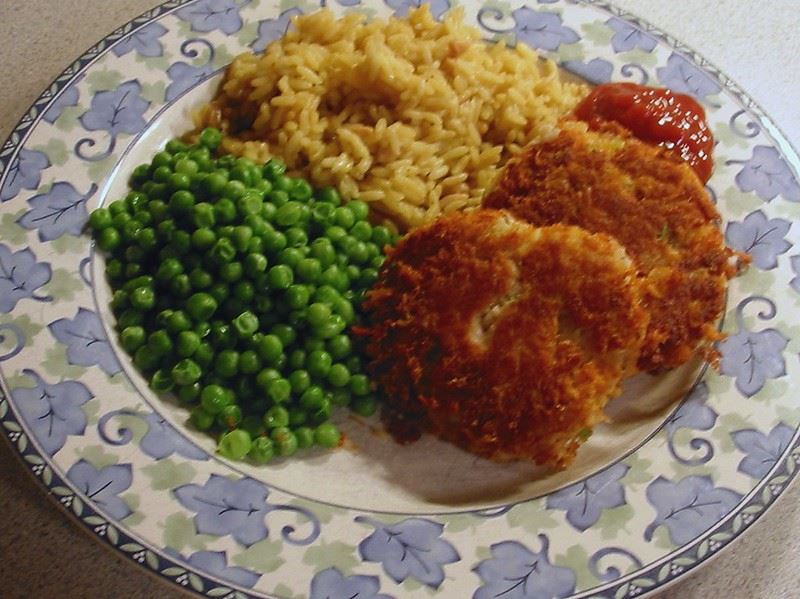
Tuna patties
A tasty and affordable dinner protein
These tuna patties can be served on a bun, in a pita, or on a bed of greens for supper, or you can keep them in the fridge for a healthy and hearty snack!
Ingredients
- 2 170 g cans of tuna
- 1/4 cup onion, diced
- 1/2 cup breadcrumbs or crushed saltine crackers
- 1 egg
- 2 tablespoons mayonnaise or plain yogurt
- 1 teaspoon lemon juice (optional)
- 1 tablespoon dried parsley or dill (optional)
- 1/2 teaspoon garlic powder (optional)
- Pinch salt and pepper
- 2 tablespoons oil
Directions
- Drain water from canned tuna, and finely dice up the onion. Add to a large mixing bowl along with breadcrumbs, eggs, mayonnaise, lemon juice and seasonings (if using). Mix thoroughly.
- Divide mixture into 4 equal portions and shape into patties.
- Heat oil in a large pan on the stove. Lay patties on pan and cook until golden brown, around 5 minutes, and then flip to cook on the other side.
- Allow to rest a few minutes before serving.
Tips
- Dice onion very fine, so that there's not large chunks in your patties.
Variations
- Try making these with any seasoning that you like; seasoning salt, lime, cilantro or other fresh herbs, or sriracha sauce are all great additions. You can also add a few tablespoons of grated parmesan cheese.
Storage
- Can be kept in a sealed container in the fridge for up to 3 days.
- Patties are best frozen before they're cooked. Shape patties and freeze on baking sheet. Once frozen, they can be transferred to an air tight container for up to 3 months. Thaw in the fridge before pan frying as directed.
Recipe adapted from the Food Bank of Waterloo Region

